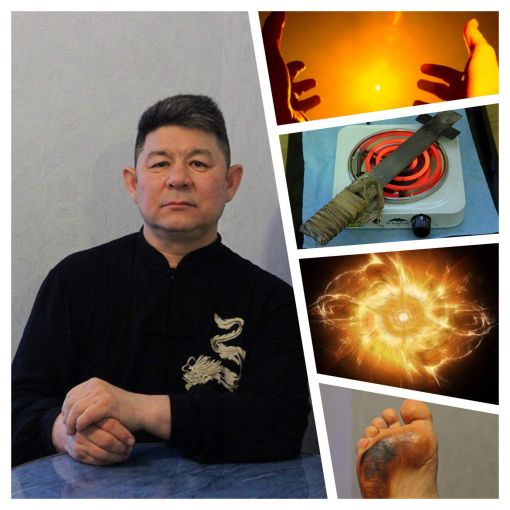
Prof. V.G. Bondarenko (Chandira),
Prof. G.E. Trakhtenberg , Moscow – Saint-Petersburg, Russia
Metahistory as part of a scientific paradigm of the new Age
Global challenges encountered by the humanity in the beginning of the third millennium, require a revision of prevailing in the recent past, but clearly outdated views on the causes and driving forces of human history. In response to these challenges is born a new scientific paradigm, new approaches and new directions are created in science, for example, transpersonal psychology . One of these new directions is metahistory.
Metahistory is the doctrine of the course and meaning of the historical process , its driving forces and future outcomes and represents «…the principle of understanding of the things and phenomena in their historical development in organic connection with the conditions by which they are generated.. Metahistory suggests an approach to the research, when we take into account not only the visible prerequisites for the circumstances , but also their esoteric underlying reason».( http://www.waylove.ru/a3933). The term introduced by analogy with the word ‘metaphysics‘ (from the Greek meta – outside , afterwards) . Metaphysics is a philosophical doctrine of the super-sensible , ie, inaccessible to the physical experienc , the principles of life.The scientific paradigm – (from Greek παράδειγμα, «example, model») is a set of fundamental scientific facilities , representations and terms that are accepted and shared by the scientific community and uniting the majority of its members. (https://ru.wikipedia.org/wiki/). According to the American historian and philosopher Kuhn (1922 – 1996) , the development of science is an abrupt revolutionary process , the essence of which is also reflected in a paradigm shift (see ” Structure of Scientific Revolutions ” in 1962 . . ) . Change of scientific concepts is one of the most pressing issues of modern science , and the change the whole paradigm of development is an urgent need not only to the scientific community of a country , but also to humanity as a whole . The history of mankind – is the story of a regular paradigm shift.In the twentieth century the paradigm of human development was viewed from the perspective of the concepts of the omnipotence of science, technological progress, exclusiveness and superiority of force. The aim of the development was declared as the satisfaction of the ever-increasing human needs. Modern science caused the scientific and technological revolution and became in the XIX-XX centuries a productive force that started an analytic dismembering of a coherent picture of the world. This carries the risk of distorting the real picture of the world, departing from the view of nature as a whole, since in a separate study, the fragment is not fully taken into account with its relationship with the environment.
In the XXI century humanity has entered the global crisis throughout the planetary system. This systemic crisis affects all aspects of human activity and all countries . In the past, a way out of these crises was in finding a new understanding of the world order , in the formation of a new scientific paradigm on tha basis of which we could create new technologies and new social relations that enable humanity not only to overcome the crisis , but also to rise to a new stage of evolutionary development .
The new scientific paradigm of the twenty-first century based on the idea of synthesis, on the idea of a transition from duality to unity , when the principle of ” either – or ” is replaced by the principle of ” both – and” , allowing to solve , seemingly irreconcilable contradictions . This paradigm shift concerns all aspects of the life of humanity on the planet Earth. This transition to a new paradigm will allow the consciousness free itself from the shackles of good lessons errors , see the World for what it Really is, and realize the unity of the World .At present, science has faced a number of challenges, that it can not explore and explain on the basis of the currently existing scientific paradigms.. The most advanced representatives of the academic community are beginning to understand the need to combine the methods of academic knowledge (science experiment, observation) with the possibilities of non-scientific methods of research. Non-scientific knowledge is a kind of scientific activity, during which the researchers uses not only methods and means permitted by the current at the moment the scientific paradigm, but also its prohibited features to obtain new information. http://evolution21.ru/scientific_paradigm. Non-scientific knowledge tends to explore the world in all accessible to the humanity ways.Today, the scientific picture of the world is changing rapidly. Interdisciplinary synthesis of sciences achieves the greatest efficacy in studies. The integration of different approaches and methods in research work extends the possibility of obtaining new knowledge. Throughout the world, a greater interest(including scientific interrest) is shown to the universal knowledge of the Science of the Ageless Wisdom, transmitted to mankind by the great minds for thousands of years of history. This knowledge forms the basis of all true religions, philosophies and ethics. The change of the scientific paradigm that is happening now is due to the change of cosmic eras, during which happen the stronomical events that trigger dramatic energy and environmental changes on our planet. We live in the the time foretold by great prophets when end the agreed together several cycles of development: universal, galactic, solar, earthly, human. This short period of time, which is currently experiencing our planet is called in the literature the Great Shift and is marked by events of great magnitude and importance.
The basis of the existence of humanity and the universe is the Cosmic law of cyclic manifestation, which is expressed in terms of the occurrence of specific cosmoplanet Ages . The most famous of them is the one influencing people’s consciousness – the Great Cosmic Cycle , or Precession of Axis , that is performed approximately every 26,000 years . Derived from it are 12 recurrent Ages , each lasting a little more than 2000 terrestrial years and accompanied by one of the seven rays ( rays of seven – the seven great cosmic Energy qualities ) . Each ray embodies the idea . Rays form the model or type of the world , which are the planetary forms and thus confer evolutionary processes of internal capacity .
At the present time there is a change of the Piscean age ( 6 th ray ) for the Aquarian Age (7th ray) . « The influence of the sixth ray served to attract people’s minds to the ideal , for example , sacrifice or service. … The seventh ray will carry out things foreseen and the ideals of the previous cycle of the sixth ray activity. One ray prepares the way to another …» And further «…the whole history is a series of consequences of those impacts that energy or radiation (in other words , the rays ) exerted on the humanity in its diverse stages of evolutionary development. They englobe all the stages of development from primitive humanity to our modern civilization ; everything that occurs is the result of cyclical effects of energy on the environment and the part of it which we call the human kingdom» (А.А.Bayley, 3. 4).
The metaphysical or otherwise transphysical (trans – through, for) structure of our planet was for the first time described by the Russian poet and visionary Daniel Andreev (1906-1959) in the main work of his life – the book “Rose of the World.” Using meta-historical method of understanding and creating metahistorical terminology, which is now being developed by those who continue to study meta-history of our planet, Daniel Andreev described elsemesurable and elsematerial reality that is inextricably linked with the flesh of earth’s history and its meaning. His metahistory is the study of the course and meaning of the historical process, its driving forces and its future results.
The research of metahistorical process is, on the one hand, subjective, as it implies not only the knowledge of the ordinary hisstory, but also the use of transpersonal methods of learning and depends on the qualities of the researcher. On the other hand, the process is objective, as based on the known cosmic laws, cycles and rhythms that do not depend on the subjective interpretations and understandings. These two ways of cognition do not argue, but complement each other, giving a much more complete and accurate picture of the historical process than when using only one of them.
Thus the subject of metahistory combines two ways of acquiring knowledge: the analytical rational (academic scientific methods) and synthetic intuitive (transpersonal techniques), as well as two kinds of knowledge: knowledge of modern academic research and space Knowledge of the Ageless Wisdom. Therefore, metahistory is a part of a new scientific paradigm that allows to include in the scientific sphere the knowledge and techniques that were not yet adopted by a materialist science. As a result, it becomes possible to shift to a more holistic view of the history of our planet and to expand the range of possibilities of its study and reflection.
Bibliography:
- Andreev D. L. Rose of the World, Мoscow, 1991. «Prometey», 1991. 156 p.
- Baylay А.А. Problems of Humanity. Destiny of Nations. Мoscow, 2013, «Amrita-Rus». 302 p.
- Bayley А.А. Treatise of Seven Rays. Vol. 5 – Rays and Initiations. Мoscow, 2013, «Amrita-Rus». 744 p.
- Kuris I. V. Prof. Transpersonal Praxis in Modern World. Herald of the Baltic Pedagogic Academy, issue 105 – 2012.
- Lesovik G. B. Doctor of Physics and Mathematics. On Scientific and Mystical Means of Cognition of Reality. Article. Journal “Pleiades”.
- http://www.citarhis.ru/magazine/articles/science_n_mystic.html
- Sinelnikov F. Metahistory and Metacultures. Article. http://exitum.org/articles/metaistoria-i-metacultury/
- What Is Paradigm?Article. Evolution XXI century. http://evolution21.ru/scientific_paradigm/257_nauchnaya_paradigma/
Bondarenko Valentina Grigorievna (Chandira) – Grand Doctor of Philosophy, IUFS Professor, Corresponding member of BPA
Tel.: +7 916-6545259,
http://www.stihi.ru/avtor/chandira
E-mail: chandira15@mail.ru



